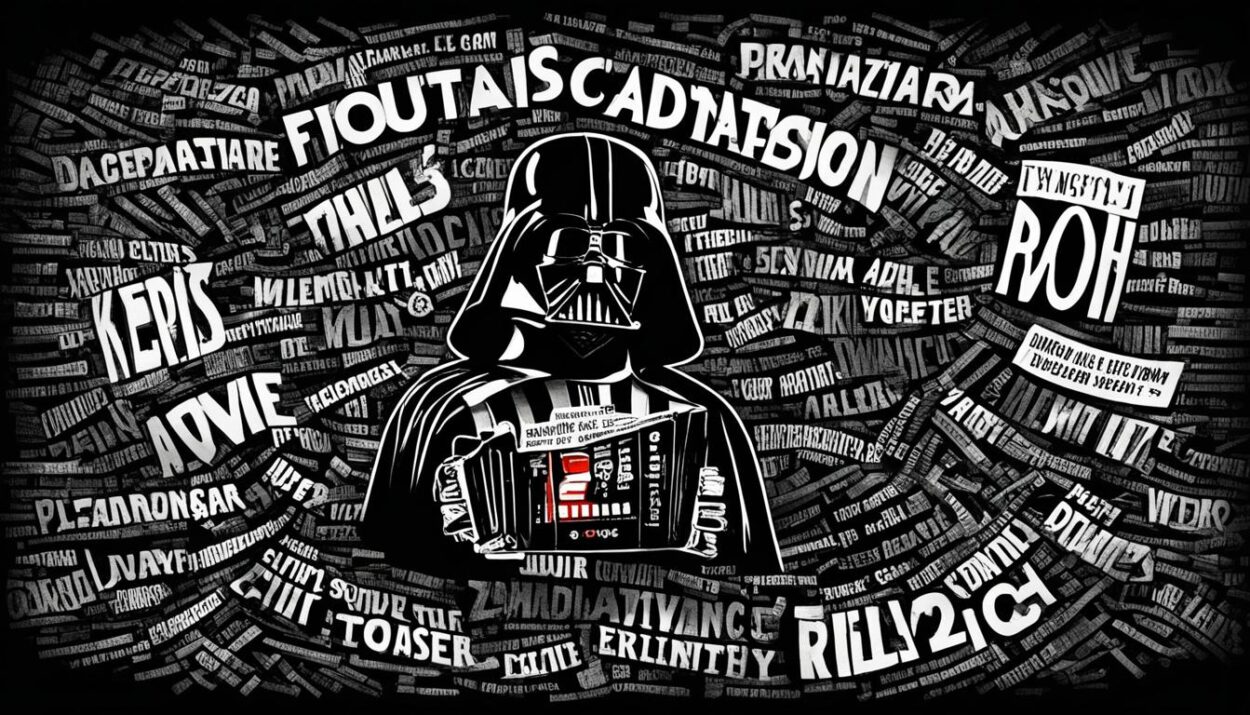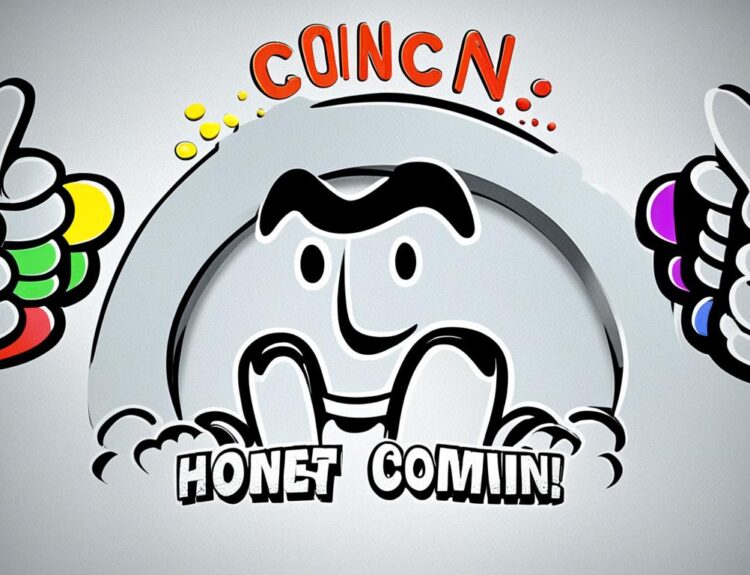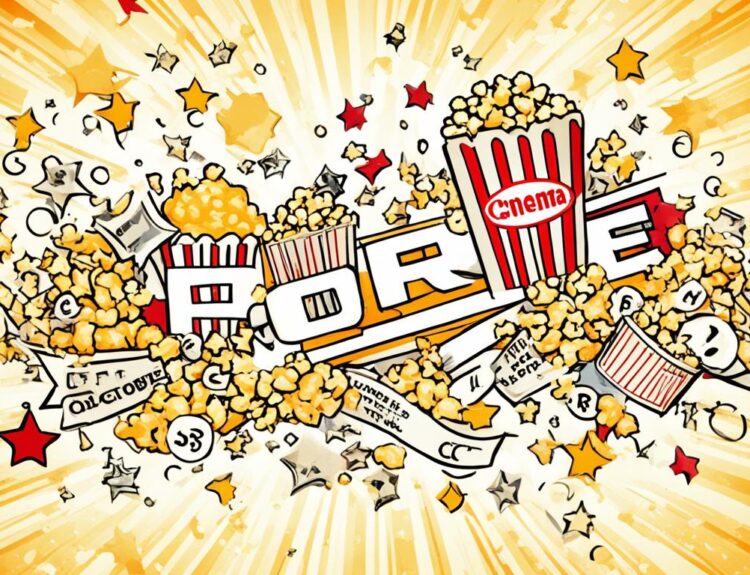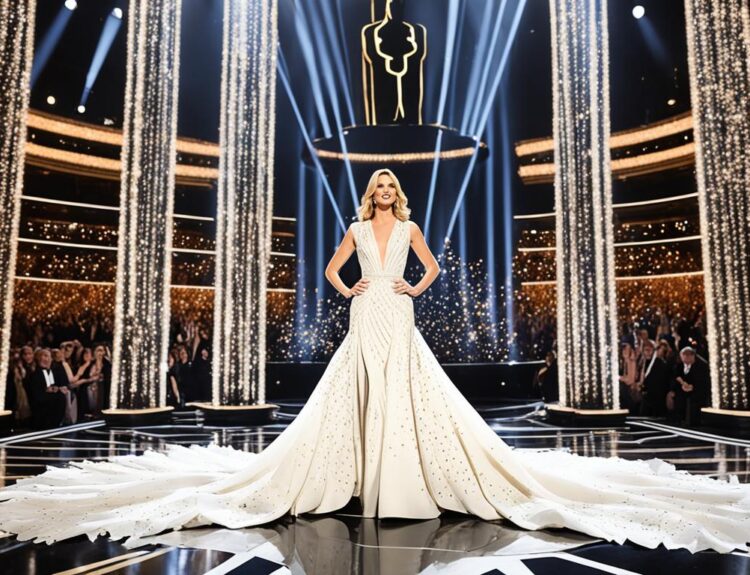The film world often faces scandals as eye-catching as movie plots. Hollywood dazzles us, but it also shows a darker side. Outrageous scandals have exposed problems, causing debates and making people take a closer look. Issues like the #MeToo movement, unfair treatment on set, pay gaps, and whitewashing are major concerns in the movie business.
The #MeToo movement started with Tarana Burke and became huge with Alyssa Milano’s tweet in 20171. It opened the floodgates for survivors to share their stories. This massive change encouraged talks on how to improve the industry. At the same time, unfair pay is a hot topic. Women and actors of color often get paid less than white male actors for similar roles.
Whitewashing is another big issue. It happens when white actors are chosen for roles meant for non-white characters. This practice raises concerns about cultural representation and being true to the original stories. Other problems include censorship and poor behavior on movie sets. Surprisingly, financial flops in Hollywood also show the big risks and money involved.
Key Takeaways
- Hollywood controversies have unveiled significant issues in the entertainment sector.
- The #MeToo movement has empowered survivors and sparked industry reform1.
- Ongoing wage disparities highlight gender and racial inequalities in Hollywood salaries.
- Whitewashing remains a critical issue regarding cultural representation in films.
- Conflict and misconduct on film sets signal the need for higher standards and better accountability.
The Role of the #MeToo Movement in the Movie Industry
The #MeToo movement has changed Hollywood’s culture. It highlights sexual misconduct and promotes change for survivors.
Origins of the #MeToo Movement
Tarana Burke founded the #MeToo movement. It got big with Alyssa Milano’s tweet in 2017, urging women to speak up about sexual harassment. The hashtag was used over 1.7 million times in 85 countries in just one week2.
This massive response demanded changes. It showed how common sexual misconduct was in Hollywood.
Impact on Hollywood
The #MeToo movement’s effect on Hollywood has been huge and varied. After Harvey Weinstein was exposed, many powerful men faced repercussions2. Women began taking key roles in the industry2. Producers linked to Weinstein became much more likely to hire female writers, with a 35% increase2.
This marks a move towards a more diverse and fair industry.
Notable Cases and Individuals
Alyssa Milano’s tweet has brought many sexual misconduct cases to light. It encouraged stars like Ashley Judd and Salma Hayek to speak out against Weinstein. The movement also cast a spotlight on harmful practices in filmmaking that were ignored before. For example, Stanley Kubrick’s treatment of Shelley Duvall in “The Shining” raised concerns3.
His movies, like “A Clockwork Orange,” have been criticized for promoting misogynistic violence3.
Another important outcome is more visibility for female writers and directors. Even though women direct only 4.5% and write 14.4% of top-grossing films, female producers are making efforts to hire more female writers2.
###
Pay Disparities: Gender and Racial Wage Gaps in Hollywood
The gender wage gap and racial inequality remain big problems in Hollywood. Actors of color and actresses often get paid less than white and male actors for the same job. This is clear when we look at how much they earn.
Gender Pay Gap
In 2017, the top male actor made $68 million. This was over 2.5 times more than the top female actress, who earned $26 million4. The gap is even bigger among the top ten actors and actresses. Men made $419 million, while women made about $226 million4.
On average, women earn $5,000 less per year than men do5. A study showed women are also less likely to earn over £20,000 compared to men4.
Racial Wage Inequality
Racial gaps show in who gets movie roles too. Only 35% of speaking parts go to women, and fewer movies are about women5. Also, fewer female characters are shown working compared to male characters5. These stats show the overlap of gender and race issues in pay.
Case Examples and Public Outcry
Some high-profile cases have highlighted these gaps. For instance, Michelle Williams was paid much less than her male co-star for extra work4. The public has strongly reacted to these cases, calling for changes to make pay fair for all actors, regardless of gender or race.
Whitewashing: The Controversy Around Casting Choices
Whitewashing is when white actors play non-white roles. This often leads to criticism about cultural representation. For years, Hollywood has faced backlash for this practice, impacting films’ messages.
Definition and History
“Whitewashing” means casting white actors for roles of people of color. It removes the characters’ cultural depth. Hollywood’s struggle with this shows the need for more diversity in movies.
Notable Instances of Whitewashing
In 1994, a studio executive suggested Julia Roberts play Harriet Tubman in “Harriet.” This shows a misunderstanding of diversity in casting6. Cynthia Erivo also faced criticism for playing Harriet Tubman, pointing out the complexities in casting6.
Scarlett Johansson has faced multiple casting controversies. She was set to play a transgender in “Rub & Tug,” sparking diversity debates6. Her role in “Ghost in the Shell” as a Japanese character brought up whitewashing issues7.
Emma Stone’s role as an Asian-American in “Aloha” was widely criticized6. Ed Skrein left “Hellboy” after backlash for playing a Japanese-American, highlighting the need for authentic casting6.
Tilda Swinton’s role in “Doctor Strange” and Rooney Mara in “Pan” sparked debates. These cases showed the importance of representation and respecting cultures67.
Scarlett Johansson and Tilda Swinton’s roles highlighted whitewashing issues. The public reaction pushed Hollywood to rethink diversity in casting7. The outcry underscores the importance of cultural representation.
The ongoing debate around whitewashing stresses the importance of true diversity in film. It’s vital for all cultures to be respectfully shown on screen.
Censorship in the Film Industry: Artistic and Ethical Concerns
Film censorship has affected artistic freedom for years. It has sparked ethical debates over its history. The norms in Hollywood have changed significantly due to this.
History of Film Censorship
In 1907, Chicago introduced America’s first movie censorship law. This led to many local boards creating their own rules89. In 1922, the film industry took a step towards self-regulation with the formation of the MPPDA led by William H. Hays8.
In 1930, the MPPDA started the Production Code to maintain social values in films and avoid moral declines8. Joseph I. Breen enforced this code strictly for over twenty years starting in 19348.
The Legion of Decency formed in 1934. Around 10 million Catholics joined, promising to avoid objectionable movies. This pressured the industry to keep moral standards high8. Before the 1930s, movies weren’t considered free speech, giving censors more power9.
Modern Censorship Issues
In the late 1960s, the decline of the Hays Code allowed for more creative freedom. In 1968, the MPAA’s new ratings system aimed to cater to various age groups, balancing freedom with ethical concerns8. Yet, censorship still influences Hollywood today.
This ratings system increased artistic freedom but also created challenges. The X rating, linked to pornography, restricted advertising and mainstream screening. This limited filmmakers’ creative scope8. Despite improvements, debates on censorship, societal values, and creative freedom continue.
On-Set Misconduct and Abuse: Case Studies
The film industry has long struggled with on-set misconduct and abuse. This reveals a culture of negligence that spans decades in Hollywood.
Barbara Stanwyck’s Legacy and Influences
Barbara Stanwyck was a pioneering actress known for her powerful on-screen presence. She faced many challenges due to the industry’s behavior standards. Despite this, her professionalism and resilience set a standard, but film set scandals still haunt Hollywood.
There have been many reported cases of abuse in Hollywood. Brian Peck, a dialogue coach for shows like The Amanda Show and All That, was charged with 11 counts of abuse. He received a 16-month prison sentence10. In a similar vein, Jason Handy, a production assistant on these shows, admitted to lewd acts. He served six years in prison10. These cases highlight the serious problem of on-set misconduct and show a need for accountability.
The documentary “Quiet on Set” explores these issues deeply. It features stories from actors like Drake Bell, Alexa Nikolas, and Giovonnie Samuels. They revealed how they faced psychological manipulation, sexual harassment, and physical abuse11. The film advocates for crucial reforms and stresses the need for responsibility and openness11.
Dan Schneider’s 2018 exit from Nickelodeon after an investigation shows the need for better standards. This revealed evidence of abusive behavior10. These examples shine a light on the systemic mistreatment in the industry. They call for big changes in how on-set misconduct is handled.
“Quiet on Set” points out the critical need for accountability in the industry. It shows how long-standing flaws allow misconduct to persist11.
Box Office Bombs: Financial Disasters in Hollywood
Box office bombs have made a big impact on Hollywood. They serve as warnings of the risks in making big-budget movies. These failures, called “turkeys” in the film world, show how unpredictable and risky the business can be.
Famous Box Office Failures
Final Fantasy: The Spirits Within (2001) is a well-known flop that led to its studio’s bankruptcy12. The Golden Compass (2007) made $370.1 million worldwide but still lost money because of its huge production and marketing costs1213. Other disasters include Showgirls (1995) and Basic Instinct 2 (2006), both slammed by critics and audiences alike12.
Economic Impact on Studios
These financial disasters have a big effect on Hollywood’s economy. When movies do poorly, studios, distributors, and production companies can lose a lot of money13.
Even if some movies make more than their production costs globally, they can still fail financially. Marketing and other costs can be very high. Yet, some movies labeled as failures at first may later make money through streaming, DVD sales, and licenses13.

| Film Title | Net Budget (Millions) | Worldwide Gross (Millions) | Estimated Loss (Millions) |
|---|---|---|---|
| Cleopatra | $44 | $57.7 | $10 |
| Waterworld | $175 | $264.2 | $12 |
| John Carter | $263.7 | $284.1 | $200 |
This data highlights the financial risks in Hollywood. It shows the serious implications of box office failures on the movie industry.
Award Show Controversies: The Politics of Winning and Losing
Award show controversies often stir up big debates. This is true for events like the Oscars and Golden Globes. The Oscars, in particular, face criticism for favoritism and political moves among Hollywood’s voters.
Case Study: Bohemian Rhapsody
The movie “Bohemian Rhapsody” sparked a lot of talks. It won several awards, including Best Actor for Rami Malek. Yet, critics had issues with how it showed Freddie Mercury’s life. They felt it didn’t accurately represent his sexuality.
This debate about the film’s accolades brings up a battle. It’s between using creative freedom and staying true to real history.
Green Book Controversy
The “Green Book” controversy highlights the complexity of award shows. It won Best Picture but was criticized for its “white savior” narrative. People also questioned its portrayal of the real-life relationship between Dr. Don Shirley and Tony Lip.
This Oscar dispute opens a bigger conversation. It’s about telling stories authentically and inclusively in movies. It reflects deeper issues with how the film industry recognizes greatness.
An unforgettable Oscars moment was when Robert Opel ran naked across the stage. Though it wasn’t planned, it sparked concerns about the event’s integrity14. The National Labor Relations Board’s involvement in guild disputes highlights the political aspects of film awards14.
The #OscarsSoWhite hashtag pointed out issues with exclusion and representation. It led the Academy to make big changes14. They aimed to double the number of women and diverse members by 2020, responding to demands for change14.
Funding an Oscar campaign can be pricy, reaching $10 million15. In 2019, many movies came out in theaters and online15. Disney co-produced many of the year’s top-earning movies15. But among these, only “Joker” got a nod for Best Picture, raising questions about the Oscars’ choices15.
In the end, controversies around award shows like the Oscars or Golden Globes spark important talks. They challenge us to think about fairness and openness in recognizing movie achievements.
Creative Differences: Clashes Between Talent and Studios
In Hollywood, “creative differences” often cause big problems in movie-making. These conflicts between talent and studios might lead to big changes. This can include a new direction, different actors, or even dropping the project entirely.
Impact on Film Production
The effects of creative differences on movies can be huge. For example, during the making of His and Her Circumstances, the fights between author Masami Tsuda and director Hideaki Anno got really bad16. Tsuda ended up wanting Anno gone. This shows how fights about direction can really change a movie.
In another case, Hiroyuki Kakudou, who directed Adventure and 02, left Digimon Adventure: Last Evolution Kizuna. He disagreed with the movie’s story because it didn’t match with what was previously established16. Fights like these can hurt a movie’s success and unity.
Notable Examples
Many stories show how common these creative fights are in film. Ian James Corlett, Goku’s first English voice in Dragon Ball Z, left after 35 episodes because of disagreements with The Ocean Group16. Takeshi Shudō, the leading writer for Pokémon: The Original Series, quit over the show’s focus on younger audiences16.
Also, during the 2001 Fruits Basket anime, there was tension between creator Natsuki Takaya and director Akitaroh Daichi. They disagreed on voice casting, character looks, and the show’s mood. This upset Takaya with the final version16. These cases show that tension between actors and studios can change films a lot.
| Event | Cause | Impact |
|---|---|---|
| His and Her Circumstances | Creative differences between author and director | Director’s dismissal |
| Dragon Ball Z | Fallout between voice actor and The Ocean Group | Actor quitting |
| Pokémon: The Original Series | Disagreements on show’s direction | Head writer’s departure |
| Fruits Basket (2001) | Disagreements over casting and tone | Creator’s disappointment |
| Digimon Adventure: Last Evolution Kizuna | Conflicting film premise and continuity | Director leaving project |
This shows a big trend of creative differences leading to major fights in Hollywood. These conflicts show why it’s so important for everyone making a movie to understand and work with each other, from directors to voice actors.
Piracy: The Ongoing Battle Against Illegal Distribution
Piracy continues to be a big problem for the movie industry. It hurts the income and jobs of many people who work in this field. The illegal sharing of movies causes serious financial problems for the industry.

Impact on the Industry
Film piracy involves illegal copying and sharing of movies without permission17. It comes in many forms like downloading without paying, watching streams without permission, and selling fake DVDs17. This leads to huge money losses, affecting ticket sales, DVD purchases, and online streaming17.
This issue not only cuts profits but also results in job losses. It impacts everyone from actors to crew members negatively17.
Measures to Combat Piracy
Fighting piracy needs many different steps, including new laws. Governments are making anti-piracy laws stronger. These laws may include punishments, better copyright rules, blocking illegal websites, educating people, and countries working together17. Success depends on countries enforcing these laws together due to the worldwide web17.
To battle illegal sharing, there’s also a push to teach customers about the harms of stealing content. By doing this, the movie industry hopes to protect films and keep the business going strong17.
| Forms of Film Piracy | Impact |
|---|---|
| Illegal Downloading | Revenue loss, job cuts, reduced innovation |
| Unauthorized Streaming | Counteracts digital subscriptions, content devaluation |
| Bootlegging | Lower quality, safety risks |
| Counterfeit DVDs | Financial losses, distribution challenges |
Controversies Surrounding the Movie Industry’s Treatment of LGBT Characters
The movie industry’s approach to LGBT characters has faced criticism. This criticism stems from a history of omitting, typecasting, and not truly representing these characters. Understanding this controversy requires looking back at history and examining recent changes.
Historical Context
Films have struggled to properly show LGBT lives. Starting in 1930, U.S. movies couldn’t openly depict homosexuality because of the Production Code. This rule was only eased in 196118. Before this change, movies included hidden references to queer lives. Yet, clear portrayals were rare18.
During the early sound movie era, stereotypes like the “pansy” were common. These roles, played by actors such as Ernest Thesiger, spread harmful myths18.
In the 1930s, older actors playing LGBTQ+ characters often got pigeonholed into exaggerated roles. This practice even happened in movies by gay directors like James Whale. Such stereotypes made film diversity seem fake. The industry usually showed queer figures as old, wise, but limited characters. This didn’t truly reflect the community’s diversity18.
Recent Developments
Lately, we’ve seen better LGBT roles in movies. Outdated stereotypes are giving way to characters with more depth and real stories18. Nowadays, movies more often reflect the true variety of queer lives. This is thanks to wider acceptance in society and efforts for more sincere representation in films. With the senior LGBTQ2S+ population expected to hit 7 million by 2030, it’s key for stories to speak to every age group18.
Read more about the portrayal of queers in Hollywood films to see how past and present industry practices have shaped LGBT representation.
Despite progress, the film industry faces ongoing issues. There’s a call for more diversity on screen. This requires rethinking who gets cast and how stories are told. By learning from both the past and recent improvements, filmmakers can better represent queer lives. This effort aims for fair and true depiction of LGBT characters on screen.
Scandalous Lives of Classic Hollywood Stars
The lives of classic Hollywood stars often had dramatic scandals and untold stories. These iconic actors were known for their on-screen roles. But, they faced personal and professional controversies too.
The Tragic Life of Barbara Stanwyck
Barbara Stanwyck was highly talented, known across Hollywood. Yet, her personal life was full of tragedies. Even with her success, her relationships and private life were scrutinized. Like many stars, her personal battles showed the turmoil behind her fame.
Other Notable Scandals
Elizabeth Taylor’s marriages were a spectacle, drawing attention19. At 14, Lana Turner’s daughter was cleared in a justifiable homicide case19. The mystery of Natalie Wood’s death in 1981 still intrigues people19. Ingrid Bergman’s affair caused a scandal, leading to backlash and divorces19.
Stars like Charlie Chaplin also faced controversies. He married two 16-year-olds19. Clark Gable’s secret child with Loretta Young was hidden their whole lives19. Rumors about Marilyn Monroe and John Fitzgerald Kennedy fuel speculation on Monroe’s death19. These scandals reveal the tough reality behind Hollywood’s glamour.
Controversial Director Bryan Singer
Bryan Singer is a well-known but controversial director in Hollywood. He has directed movies that received a lot of praise and made big money. However, he has also faced serious accusations that have made people look closely at his career.
Career and Achievements
Bryan Singer was born on September 16, 1965. He has been making movies since 198420. His first short film was Lion’s Den in 198820.
He won a big prize at the Sundance Film Festival in 1993 for Public Access20. The Usual Suspects, a movie he directed in 1995, received a lot of praise20. Singer also directed Superman Returns and won an award for X-Men in 200020. His movies have made over $3 billion, making him one of Hollywood’s top directors21.
In January 2017, Singer started working on The Gifted, a TV show. Despite its cancellation after two seasons, he remained a notable figure20. Even after being removed from Bohemian Rhapsody, the movie was a huge success21.
Furthermore, Singer has a son with actress Michelle Clunie, born in January 201520.
Allegations and Legal Issues
Bryan Singer’s career is clouded by ongoing accusations and legal troubles. He was let go by 20th Century Fox in 2017, close to finishing a project21. These accusations have seriously affected his reputation21.
Many people have accused Singer of serious wrongdoings, causing them harm21. Despite these accusations, Singer firmly denies any wrongdoing. He insists he has never been legally charged21.
A year-long investigation looked into these accusations, consulting over 50 sources21. The Los Angeles District Attorney’s Office didn’t press charges related to some lawsuits that came up during a movie shoot21.
Bryan Singer’s situation shows the importance of holding Hollywood accountable. It’s a reminder that a person’s achievements can be overshadowed by serious accusations and concerns21.
| Major Achievement | Year |
|---|---|
| Grand Jury Prize at Sundance (Public Access) | 1993 |
| Critical Acclaim for The Usual Suspects | 1995 |
| Saturn Award for Best Direction (X-Men) | 2000 |
| Directing Superman Returns | 2006 |
| $3 billion Box Office Earnings | – |
| Earnings of Bohemian Rhapsody | 2018 |
| Directing The Gifted | 2017 |
Bohemian Rhapsody: A Controversial Biopic
Bohemian Rhapsody tells the story of Queen and Freddie Mercury. It became the top-earning music biopic, making over $800 million22. Yet, it sparked heated debates, especially about how it showed Mercury’s life and relationships.
Critical Acclaim vs. Audience Reception
The film earned Rami Malek a Golden Globe for his role22. Even with over 50 nominations, critics gave it mixed reviews. It got a 62% on Rotten Tomatoes, making it controversial among award-winning films22.
This difference shows a gap between what critics and audiences think. It raises questions on how we view movies and their value.
Misrepresentation of Freddie Mercury
The film faced backlash for not fully showing Mercury’s sexuality and his relationships. Critics felt it overlooked his partner Jim Hutton, focusing more on Mary Austin22. Rami Malek shared frustrations about accurately portraying Mercury’s sexuality, hinting at larger issues of LGBTQ representation in film.
For more on this, check out Refinery29’s article.
Despite controversies, the impact of Bohemian Rhapsody is undeniable. It captured hearts worldwide and sparked important conversations on truth in biopics and inclusion.
FAQ
What is the #MeToo movement and how did it start?
How has the #MeToo movement impacted Hollywood?
What are some notable cases and individuals related to the #MeToo movement?
What is the gender pay gap in Hollywood?
How does racial wage inequality manifest in Hollywood?
Can you provide some cases of public outcry over pay disparities?
What is whitewashing in the film industry?
What are some notable instances of whitewashing in Hollywood?
What is the history of censorship in the film industry?
What are some modern censorship issues in the film industry?
What are some key instances of on-set misconduct and abuse?
What are some famous box office bombs?
How do box office bombs impact studios economically?
What controversies surrounded the film “Bohemian Rhapsody”?
What was the Green Book controversy at award shows?
What are creative differences in the film industry?
Can you give examples of notable disputes due to creative differences?
How does piracy impact the movie industry?
What measures do studios take to combat piracy?
What is the historical context of LGBT representation in films?
What are some recent developments in LGBT representation in Hollywood?
What is known about the tragic life of Barbara Stanwyck?
What are some other notable scandals from classic Hollywood?
Who is Bryan Singer and why is he controversial?
What are some of Bryan Singer’s career achievements?
How was “Bohemian Rhapsody” received by critics and audiences?
What are the main controversies surrounding the portrayal of Freddie Mercury in “Bohemian Rhapsody”?
Source Links
- https://news.northeastern.edu/2023/07/27/barbenheimer-movie-industry/
- https://hbswk.hbs.edu/item/has-metoo-changed-how-hollywood-hires
- https://nrftsjournal.org/stanley-kubrick-and-metoo/
- https://en.wikipedia.org/wiki/Inequality_in_Hollywood
- https://bpr.studentorg.berkeley.edu/2022/10/12/uncovering-hollywoods-contribution-to-the-gender-pay-gap/
- https://ew.com/gallery/movies-casting-controversy/
- https://movieweb.com/controversial-casting-decisions-2010s/
- https://ncac.org/resource/a-brief-history-of-film-censorship
- https://www.theslateonline.com/article/2023/05/commentary-censorship-in-film-music-and-entertainment
- https://www.vox.com/culture/24115802/quiet-on-set-nickelodeon-dan-schneider-drake-bell-amanda-bynes-ariana-grande
- https://www.thefamuanonline.com/2024/03/26/quiet-on-set-reveals-grim-stories/
- https://www.filmsite.org/greatestflops.html
- https://en.wikipedia.org/wiki/List_of_biggest_box-office_bombs
- https://www.buzzfeed.com/kristenharris1/oscars-scandals-controversial-moments
- https://www.vox.com/the-highlight/2020/1/29/21060179/love-movies-hate-the-oscars-academy-awards-season
- https://tvtropes.org/pmwiki/pmwiki.php/Main/CreativeDifferences
- https://bytescare.com/blog/film-piracy-bill
- https://xtramagazine.com/culture/queer-seniors-film-hollywood-205372
- https://www.remindmagazine.com/article/3569/top-ten-old-hollywood-scandals-forgotten/
- https://en.wikipedia.org/wiki/Bryan_Singer
- https://www.theatlantic.com/magazine/archive/2019/03/bryan-singers-accusers-speak-out/580462/
- https://www.refinery29.com/en-us/2019/01/222111/bohemian-rhapsody-movie-controversy-freddie-mercury-story





